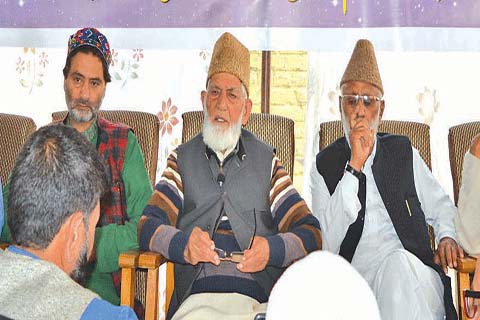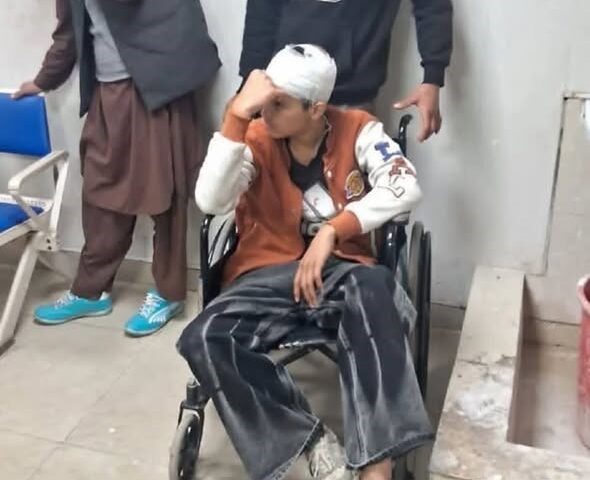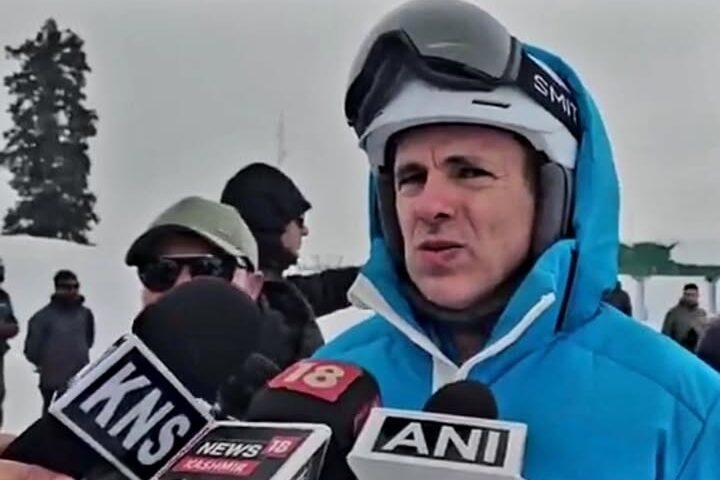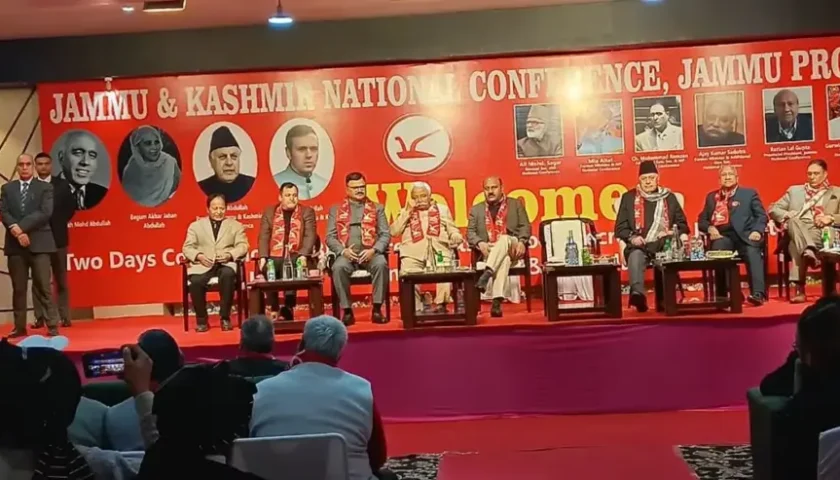On Thursday morning, the Jammu and Kashmir government allowed a seminar hosted by Tehreek-e-Hurriyat, led by Syed Ali Shah Geelani, to commemorate the 140th birth anniversary of Sir Muhammad Iqbal. It was a rare occasion for Tehreek-e-Hurriyat activists, majority of whom were arrested after last year’s unrest, to huddle under a single roof and break the bread together.
There were many firsts in the conference. Geelani broke down on seeing his long-time associate and Hurriyat general secretary MA Sehrai after ‘several years’, despite living in the same city, due to curbs imposed on the two by the government. Since the civilian uprising began last year after the killing of Hizbul Mujahideen commander Burhan Wani, this was the first time that Kashmir’s most creditable separatist leader, Syed Ali Geelani, was allowed to speak during a seminar.
Although the delegates walked in freely, the television cameras were not allowed inside the venue of the seminar, the residence of Geelani. Two armoured vehicles of Jammu and Kashmir Police and paramilitary CRPF remained posted outside the main gate of Geelani’s residence-cum-office. Over a dozen cops and CRPF personnel have been stationed there for over seven years now and a 360 degree camera has been mounted atop a vehicle to record the movement of people who loiter around or enter Geelani’s office.
Geelani looked frail and ailing when the seminar started. Speaking in a broken voice about the Government of India’s interlocutor, Dineshwar Sharma, his message to the delegates was clear: there will be no talks with New Delhi till it accepts Kashmir as a “dispute”.
The state government led by PDP-BJP coalition would have liked the 88-year-old separatist leader to tone down his rhetoric, which was perhaps why it allowed the seminar to take place. However, Geelani treaded the old path. He spoke against the talks, which are held without involving Pakistan, and belittled Sharma, who is presently on a five-day visit to the state.
The octogenarian separatist even failed to pronounce Dineshwar Sharma’s name properly in his address, which lasted for 40 minutes. Referring to the National Conference founded by Sheikh Mohammad Abdullah, he said the leaders could not foresee the consequences of Kashmir becoming a part of India.
“Whatever is happening this time – killings, injuries, arrests, is because of this unnatural alliance and the then leaders are responsible for it,” Geelani surmised.
“Situation has come to this stage that now people from India publicly talk about Hindu Rashtra and Jamia Masjid in Srinagar is being closed for weeks together,” Geelani said. “Now, these rulers are openly framing textbooks in praise of Hindu rulers who killed Muslims and these are being spread across India.”
Referring to Sharma’s statement that situation in Kashmir was “like that of Syria”, Geelani said, “this is part of the same ideology which targets Islam and that is why (Prime Minister Narendra) Modi is promoting Sufism.” “They want to take away from us our identity, culture and religion,” he added.
The Jammu and Kashmir Liberation Front chief, Mohammad Yasin Malik, said at this juncture, when New Delhi is trying to make Kashmiris surrender, there is a need among the Hurriyat leadership to remain united.
“They failed to cow us down by killings, injuries, blindings and arrests but now they have started targeting families of Geelani sahab and Mirwaiz (Umar Farooq),” he said. “Government of India’s home minister Rajnath Singh has said that by 2022, Jammu and Kashmir will be Hurriyat-free, which means there will be no movement here but we will not surrender.”
“Unity is the need of the hour as there is only onslaught from Government of India, but some people do not want unity,” Malik said in his address.
Sharma, the newly appointed special representative to Jammu and Kashmir, had said on Wednesday that he would try his best to meet Hurriyat leaders. However, the efforts led by the state government which, according to sources, had tried to approach Geelani, failed to break the ice.
Given the hardening of stances on both sides and flying rhetoric, there is a need to find a middle ground in Kashmir. New Delhi would do well to remember that even if the only issue it has with Pakistan is the part of Kashmir under the latter’s occupation, it still has to engage with that country. In the age of nuclear weapons, there is no alternative to talks for resolving conflicts. Sharma must bring much more to the table when he returns to Kashmir next time.




